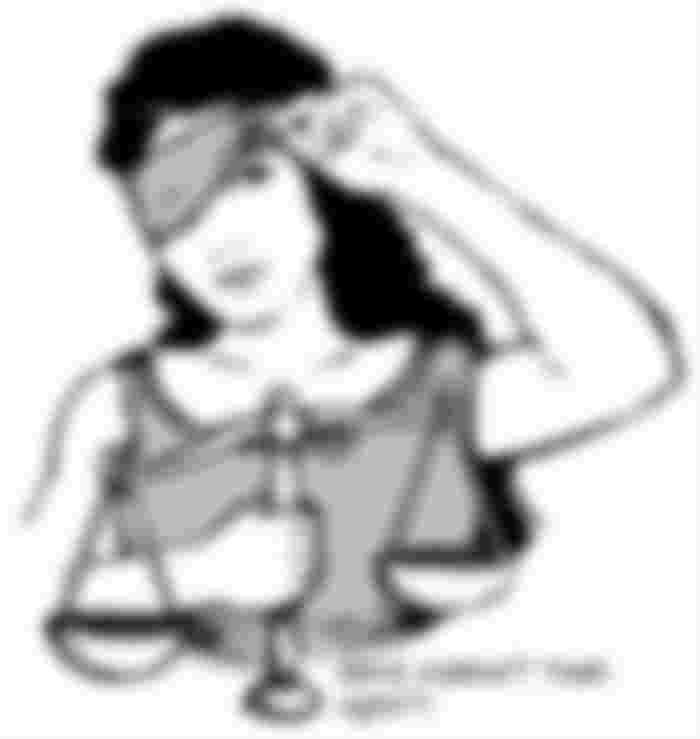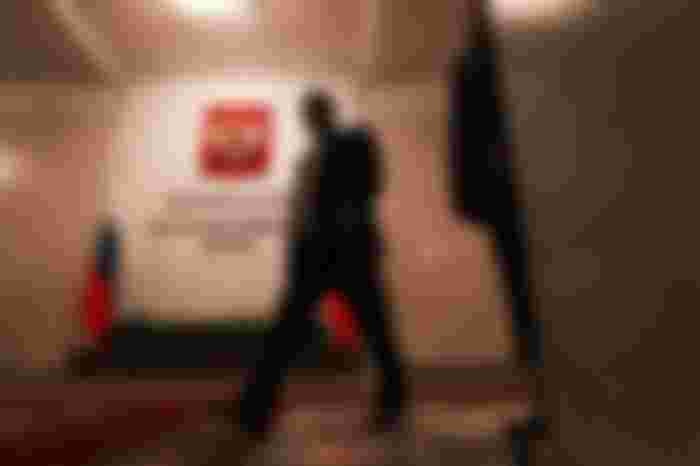
Putin's Russia is often described as an authoritarian regime, and he is often portrayed in the media as Russia's new Tsar. This is no wonder, as he plays just as much of a symbolic role in the Russian Federation as, for instance, Nicholas the Second did in the Russian Empire. Nicholas had the people beg him and the Empress for mercy with banners, songs and drawings of him and the Tsarina (another word for "Empress") on what history remembers as the Bloody Sunday. Putin enjoys a much quiter sort of popularity, a popularity based on, one could say, fear. He is rarely seen in public, his likeness is rarely reproduced in context that may indicate comedy or impropriety (look up the so-called "Gay Clown" image, which is banned from being shared in Russia), and the only crowds that gather in Moscow in relation to him are the crowds of protestors. Nevertheless, his grip on the country is, much like the proverbial curtain, iron, and with the amendments to the Constitution of the Russian Federation at his disposal, he is at a theoretical liberty to stay in power until 2036. If that would indeed happen, he will have stayed in power for a whopping 32 years! But today, I would like to talk about another prominent member of the Russian political scene, one, whose story has recently been all over the news - the opposition leader Alexey Navalny.

Alexey Navalny, the leader of the opposition party "Progress Party" has now recovered from his condition, though medical professionals are careful to point out that Alexey is not entirely healthy - long-term effects of the poisoning are possible and are unclear. But what was it that could have possibly provoked the poisoning, which was, as Alexey states, was politiclly-motivated and was ordered by someone in the current government?

Alexey has a long history of calling out the powers that be for their undemocratic stance and their alleged violations of the rule of law in Russia. Not a year goes by without him being arrested, sometimes multiple times, for threatening public order by taking part in and/or organising protest marches. In 2019, after he has been thrown behind bars yet again, there even had already been an attempt at poisoning: Alexey acquired contact dermitits. Although his 'samples' were tested at a prominent medical institution in Moscow - the Sklifosofsky Institute - and came back negative, his lawyer at the time specified that the testing 'conviniently overlooked' the most important evidence - Alexey's bedsheets and clothes were never tested. One finds themselvers wondering - was this a merely unfortunate turn of events, or was it a purposeful oversight? Let's dig deeper and see if we can spot a pattern.
Between 2012 and 2017, Navalny had been involved in a series of legal cases against him. Some proceedings were initiated by the government, other - by high-standing government officials.
2012 - first big case that made the news. The prosecution argued, that in 2009, while Navalny was serving as an advisor to N. Belikh, the governor of Kirovskaya district at the time, they have 'stolen 10k cubic meters of timber' for the total sum of about 16 million. He didn't actually literally steal that much timber. It was more that his and Belikh's company bought timber at a suspiciously low price from a government-owned Kirovles, a timber company. The trial has gone on until 2013, when Navalny was finally convicted of embezzlement - misappropriation of funds - and was ordered to pay 500k rubles and was sentenced to 5 years imprisonment. The court has later suspended his prison sentence, essentially putting him on probation. The case was later tried in the ECHR, which had concluded that Navalny was refused a fair hearing, and that the sentence was unfair and had to be quashed.
Then, in 2014 - another hefty sentence, also involving an important deal. The prosecution argued that the company owned by A. Navalny and his brother, made a bad distribution deal with two Russian firms - Iv Roche and MPK, which resulted in a whopping 34 million ruble loss for the two. It was reported that both firms, appearing in the court as witnesses, stated that no financial loss was suffered. Internal audits of Iv Roche had the same conclusion - no loss sustained. Despite that, the trial went ahead, and Navalny was put on house arrest with an order of no-contact: he could only speak to his family, as well as his lawyer. That part was later lifted, but Navalny was nevertheless found guilty and sentenced to 3.5 years of suspended jail time (also, essentially probation). However, his brother was not so lucky and recieved 3.5 years of prison, which he found, as he stated in an interview, relatively 'easy to forget'.
Also in 2014, a number officials filed claims against Navalny for libel and slander. In all of them, he was found guilty and was ordered to pay fines as well as restore the victims' reputation. Furthermore, in June 2014, he got called in front of the judge again - this time, for allegedly being involved in handling stolen goods. Wait, it gets better - let me throw in some details. Navalny was gifted a painting. Pretty innocent, right? Well, turns out, that the painting was accidentally reported stolen by the painter. He, you see, put the painting in public display - hanged it somewhere on the street of a Russian city Vladimir, and then had the police ask him to come in for something unrelated. He, the artist, was given a paper with hardly legible text to sign, and he, being 'trusting' and 'wanting to get the whole thing over and done with', signed it. The paper turned out to be an official request for the police to investigate theft of the painting, which was then found in Navalny's possession.
Finally, in 2017, there was a re-trial of the Kirovles case about the timber. But wait a second, some of you might say, wasn't there a European Court of Human Rights ruling that the proceedings, as well as the sentence, must not stand on the grounds that Navalny was refused a right to fair trial? Oh, no. You see, in 2015, the Russian Parliament conviniently passed a law that allowes the Russian government to overrule decisions of the ECHR. Not all that unusual, as far as European countries go: ECHR decisions are considered not binding in the UK either - this is how the governemnt was able to get away with circumventing the ECHR declaraion of incompatability pertaining to UK refusing its prisoners the right to vote. However, it is easy to see how in Russia such a law may be particularly dangerous to have in place.

So far, the only red flag that one might see is the 2014 case, where, despite the statements by both witnesses that no financial loss had been suffered, the trial continued and resulted in a prison sentence for one of the two Navalny brothers. However, things are really put in perspective with those two facts: 2013 was the year when Navanlny attempted to run for the position of Mayor of Moscow against the current Mayor S. Sobyanin. Navalny lost, having gained slightly more than a quarter of all votes. Then, in 2018, Navalny attempted to run for the president of the Russian Federation, only - how unfortunate! - his previous convictions were a bit of a problem, and his name was thrown off the ballot.
Now let's sum up: an outspoken Kremlin critic had first been drawn into legal proceedings, was put behind bars and fined numerous times, and all around or near important dates in his political career. It only seems convinient for the status-quo that Navalny's resources, as well as himself, would be arrested to prevent him from campaigning, as well as to stain his reputation, preventing him from taking part in political fights. That leads him out on the streets, where he tries to defend his position, but - alas! - he becomes a treat to public order and has to be detained. Seems like something foul is afoot. And now, with the most recent poisoning, which also is claimed to be politically motivated, since the compound used was the same as in the Skripaly case, which was proven to be politically motivated, a clear picture arises. Someone thinks, that Russia is doing quite well without any opposition. On three, let's both say, who that certain someone is.

As said above, the story with the second Novichok poisoning is still far from over, but one thing is quite clear: we will see many more attempts at silencing the voice of those, who the regime finds threatening. And whether Navalny is the main character of this story, or merely an example, pointing out the general problem of the lack of critical discource in the Russian society, it is great to know that the current government is not as stable as it is told to the public - otherwise why would 'dissidents' be an issue at all?
Sources:
Articles:
https://en.wikipedia.org/wiki/Political_career_of_Vladimir_Putin
https://en.wikipedia.org/wiki/Alexei_Navalny
https://www.opendemocracy.net/en/odr/trials-and-tribulations-of-alexei-navalny/
https://www.rferl.org/a/oleg-navalny-released-from-russian-prison-after-3-1-2-years/29326978.html
Images:
https://time.com/5541411/conspiracy-theories-domestic-terrorism/
https://depositphotos.com/8902630/stock-photo-justice-is-blind-or-maybe.html




